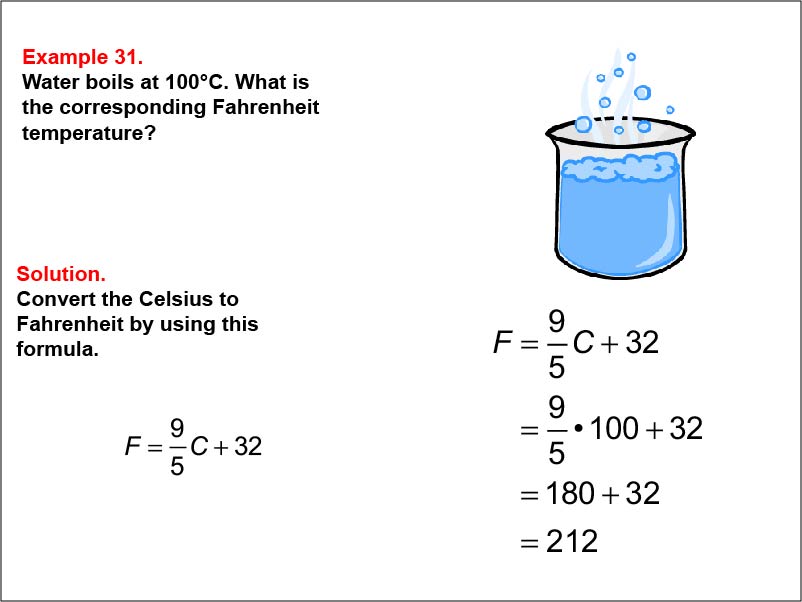
Display Title
Math Example--Ratios and Rates--Example 31
Display Title
Math Example--Ratios and Rates--Example 31

Topic
Ratios and Rates
Description
This example focuses on temperature unit conversion, specifically converting Celsius to Fahrenheit for the boiling point of water. The image shows a beaker of boiling water, providing a visual context for the mathematical problem.
Understanding temperature unit conversions is crucial in many scientific fields, including chemistry, physics, and meteorology. This example demonstrates how to use a conversion formula to change units, illustrating the practical application of mathematical equations in real-world temperature scenarios.
Exposure to multiple worked-out examples is crucial for students to fully comprehend the concept of temperature unit conversions. Each example in this series presents a unique scenario, allowing students to practice converting between different temperature scales. This repetition helps reinforce the concept and builds confidence in applying these skills to various real-world situations, including scientific experiments and weather analysis.
Teacher's Script: Let's examine this problem about the boiling point of water. We know the temperature in Celsius, but we want to express it in Fahrenheit. How can we convert from Celsius to Fahrenheit? What formula do we need to use? Remember, this formula involves both multiplication and addition. Can you guide me through the conversion process step by step? Why do we multiply by 9/5 and then add 32 in this case?
For a complete collection of math examples related to Ratios and Rates click on this link: Math Examples: Ratios and Rates Collection.
| Common Core Standards | CCSS.MATH.CONTENT.6.RP.A.1, CCSS.MATH.CONTENT.6.RP.A.2, CCSS.MATH.CONTENT.6.RP.A.3, CCSS.MATH.CONTENT.7.RP.A.1, CCSS.MATH.CONTENT.7.RP.A.2 |
|---|---|
| Grade Range | 6 - 8 |
| Curriculum Nodes |
Algebra • Ratios, Proportions, and Percents • Ratios and Rates |
| Copyright Year | 2013 |
| Keywords | ratios, rates, unit rates, proportions, solving proportions, dimensional analysis |